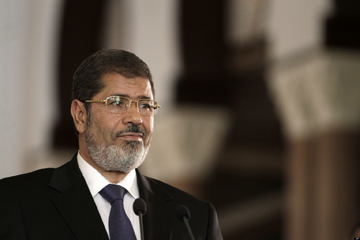
Aadil Murad
Contributing Writer
The United States has always had a rocky relationship with the Middle East. We have never truly believed that the Middle East would be a region of stability or freedom. We thought of the Middle East as a region of dictators trying to keep its radical, Islamist, Jew-hating population in check. Then came the Arab Spring, and everything changed.
Revolutions starting in Tunisia and then spreading to Egypt, Syria and Libya began to change the image of the Middle East. Was it the end of the despots? Was change really coming? Was the region finally going to be free? These questions were beginning to be asked with the answers and realities not totally clear.
However, with the recent bombing of the Iranian Embassy in Lebanon, the removal of the freely elected Muslim Brotherhood backed government in Egypt and the sectarian violence that has engulfed Syria, it seems as if the Arab Spring is running dry.
Many people are wondering if the Arab Spring and its realities are in the best interest of the United States. The election of President Mohammed Morsi, a Muslim Brotherhood backed candidate in Egypt, most likely sent shivers down the backs of many Americans. A candidate from a party that not too long ago was considered a terrorist organization by many Americans was now the freely elected leader of Egypt. These realities are becoming quite
scary indeed.
Another scary situation for Americans is Syria. In the American perception, Syria started out as a component of the Arab Spring, a struggle for freedom, but now has turned into conflict that has many radical al-Qaida elements sprinkled in with the Syrian opposition. The fear being that Syria, under the new government, would turn into a state sympathetic to
extremist elements.
These fears are valid. But we should not be against freedom in the Middle East because of fears of what might result. The people of the Middle East long for stability and security more than anyone else. They are mothers, daughters, fathers and sons just like any other people. And the idea that they will give up their freedom to a very small number of terrorists is unlikely. Extremist radicals have a presence in the Middle East, but by no means does this presence mean that they have the power or influence to take over governments or institutions in the region. The people of the Middle East won’t allow it.
What we must understand as Americans is that freedom in the Middle East is the goal. Freedom is a good thing. And freedom will bring about increased stability and security in the region. And that we must stand by freedom no matter how uneasy that makes us feel, because at the end of the day, it is freedom that will
destroy extremism.
And finally, we must also understand that bringing about freedom and democracy in the Middle East is not easy and is going to take time. Just as our history suggests, creating a new state is very difficult. As the United States we must always stand by human rights and uphold freedom wherever it may be threatened.
Murad is a senior majoring in international studies.














